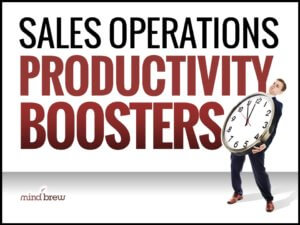A case study in the SellingBrew Playbook — Using a Cost-Plus Mindset to Your Advantage — brings to mind some interesting questions about results versus best practices, transparency versus expediency, and leadership versus politics.
In this case study—or war story, really—a consultant relays his experiences in dealing with a sales team’s entrenched cost-plus mindset and a company’s dysfunctional leadership team. In the end, faced with a looming financial crisis as well as a crisis in leadership, an expedient solution was devised—one that many would characterize as “tricking” the sales team into pricing more effectively.
As it ultimately improved the company’s financial performance, one could argue that the solution did indeed work. And while the solution would hardly be considered “best practice” in most circles, from a problem-solving perspective one could say that the solution made the best of a very bad situation.
But while the case makes for very interesting and entertaining reading, it also begs some important questions about the pursuit of improved performance:
- Is organizational transparency more important than organizational survival?
- Is generating results more important than doing things the right way?
- Is there really a “right” way, or does it depend on the specific situation?
- Does politics play a greater role than the textbooks would have us believe?
- When should we work around barriers, rather than tackling them head on?
- What is our responsibility to our co-workers when they’re the problem?
- Can any amount of performance improvement overcome a lack of leadership?
Most of those who read the case study will no doubt shake their head in disgust—about both the situation and the ultimate solution.
But I’m also guessing that there will be more than a few readers who will be nodding their heads—maybe not in agreement, but in sympathetic understanding. These people likely recognize similar elements in their own environment, and they’ve likely considered employing some unorthodox solutions of their own at some point.
Because, like it or not, business these days is rarely “by the book.”










